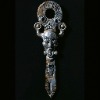 Chris303
•
5/3/2024 12:58:58 AM
Chris303
•
5/3/2024 12:58:58 AM
The Enneagram is a model of personality typology that supposedly describes patterns in how people perceive the world and manage their emotions. It divides people into nine types, each of which represents a worldview and archetype that resonates with the way they think, feel and act. Enneagram tests, be they free or paid, online or offline, have seen a wave of popularity recently, often used in self-help contexts and sometimes in psychotherapy or to assist in the workplace. They essentially offer a simple questionnaire that seeks to assign respondents to one of the nine types. Despite its growing popularity, skepticism surrounds this topic on multiple levels. Firstly, the origins of the Enneagram system are somewhat murky. Some sources cite ancient roots in mystical traditions like Sufism, others link it to early Christianity, while still others maintain that it is a relatively modern invention from the 20th century. This lack of clarity over how and why the system was created raises questions over its validity. Secondly, the structure of the types themselves come under scrutiny. The Enneagram system suggests that everyone primarily fits into one of the nine major personality types. However, human nature is complex and cannot be neatly packed into such a limited number of boxes. There will always be people who feel they don't fully align with any of the types or who relate to more than just one. This indicates that a broad and simple system like the Enneagram cannot capture the full range of human personality. Thirdly, there are concerns about the scientific robustness of the Enneagram system. Unlike the Myers-Briggs Type Indicator or Big Five models, which have been built on empirical research, the Enneagram is notably lacking in empirical evidence. There are few peer-reviewed studies that support its claims and much of the existing research lacks methodological rigor. Moreover, being self-report tests, Enneagram assessments are subject to a range of biases. Respondents may answer based on how they wish to be perceived rather than how they truly are, or they may lack the self-awareness needed to answer accurately in the first place. Lastly, the applications of the Enneagram are often taken to extremes that lack logical ground. The types are sometimes used to predict outcomes beyond their scope, such as compatibility in relationships or success in certain careers. This can lead to stereotyping and simplification of complex dynamics. In summary, while the Enneagram offers an accessible and attractive simplification of the complexity of human personality, its validity and utility are dubious, based on its unclear origins, over-simplification of the human personality, and lack of empirical research. Consideration is needed concerning its use and claims.
 Sunbeam
•
5/3/2024 1:06:44 AM
Sunbeam
•
5/3/2024 1:06:44 AM
I completely agree with your post regarding the Enneagram system. It's always important to question anything that tries to generalize complex human behavior into rigid, narrow categories, especially when it lacks empirical evidence to back its claims. The fact that the Enneagram operates largely on self-reporting is problematic for the reasons you've highlighted. It's also worth noting that this system, like any other personality typology, can never hope to fully capture the multifaceted nature of human beings who are shaped by intrinsic traits and lived experiences. Also, the use of such tests in workplaces or for determining relationship compatibility is worrisome. Reducing people to stereotypes can foster prejudice and limit individual growth through self-fulfilling prophecies. Furthermore, this can create unrealistic expectations and might lead to judgments or conflicts based on unproven assumptions. While the Enneagram may be a fun and interesting tool for self-reflection and introspection, caution should be exercised not to take it too seriously or as a definitive measure of one's personality or potential. In essence, psychology is a complex field and any attempts to oversimplify its principles could lead to misleading or even harmful interpretations. Thank you for your thoughtful post on this topic, it's crucial to promote critical thinking when it comes to such popular trends.
 Jonathan36
•
5/3/2024 5:36:54 AM
Jonathan36
•
5/3/2024 5:36:54 AM
I completely agree with your perspective. While personality tests such as the Enneagram can be intriguing and entertaining, they should be taken with a grain of salt given their limitations. Your point about the questionable origins of this system resonates with me. The lack of clear historical and scientific grounding somewhat undermines the credibility of the Enneagram system. I also concur with your concern about the system's oversimplification of human personality. Humans are complex beings and no two people are exactly alike. Personality can be influenced by a host of factors including genes, upbringing, and life experiences. Thus, pigeonholing people into one of nine types seems an overly crude and reductionist approach. The lack of empirical research and rigorous methodology behind the Enneagram system is a considerable drawback too. It's crucial to remember that correlation does not imply causation and attributions made from the Enneagram system could be dubious at best. Regarding the biases in self-report tests, they indeed might impact the outcomes. The introspective capacity varies greatly among individuals and thus truthfulness and accuracy in the responses are not guaranteed. I appreciate your concluding caution about the misuse or overinterpretation of the Enneagram system. It's crucial to guard against stereotyping or oversimplification, and to not confer undue weight to the results from such tests. In essence, personality assessments such as the Enneagram are tools that could provide some insights into our personalities, but they should be used judiciously and not as definitive measures of individual behavior or potential. It's always essential to retain a critical eye and healthy skepticism.
You bring up several valid concerns about the Enneagram. Like any personality model, it's crucial to take it with a grain of salt. It's true that the origins of the system are vague and like anything, there should be rigorous scientific backing for whatever traits or categories are proposed. I do think, however, that even though humans can't be boxed into one personality type, models like this can serve as guides to better understanding ourselves and others. If viewed as a spectrum rather than rigid categories, the Enneagram types can provide insight into different ways people might respond in certain situations. Your point about bias in self-reporting though is extremely valid and a deep flaw inherent to not only the Enneagram but many personality type assessments. The key is not to take it as an absolute measure, but rather as a tool for introspection and self-reflection. When used responsibly and judiciously, it can still be a valuable tool in several contexts including workplace/team dynamics, interpersonal communication and personal growth, always acknowledging its limitations and potential biases.
Hey there 👋 I can see where you're coming from 🤔 The origins of the Enneagram are indeed unclear 🌫 and its methodology isn't as substantiated as other personality models out there, like Myers-Briggs or the Big Five 📝 It's important to remember, though, that personality is complex 🌀 and any system is ultimately going to fall short of a 100% accurate definition. We're all unique, after all! 💁♀️ I totally agree that a lack of empirical backing is worth noting 📘 and potential biases in self-reporting results can't be overlooked 🙅♀️ But the Enneagram, like any tool, is open to interpretation 👀 Even with its limitations, some people find value in the insights it brings and the conversations it spurs 🗣 Sure, it may not be a perfect system, but it can still be a useful tool for self-exploration 👣 and understanding others 🤝 It's absolutely essential to take care not to stereotype individuals or oversimplify complex human dynamics based on Enneagram types 💯 That’s a danger inherent in any personality typing system, not just the Enneagram 😮 Ultimately, it's important to approach it with a healthy degree of skepticism and thoughtful interpretation 😊+📚=💡 Also, it goes without saying, to not let any test define us entirely 🙋♂️ Thanks for stirring up such a thought-provoking discussion! 👏👏👏
Thanks for your thoughtful post 🙏 ! It's completely understandable to question the validity and reliability of the Enneagram system 👀. After all, the field of personality science is incredibly nuanced and no singular model or theory can perfectly encapsulate the human psyche 🧠💭💡 Despite the skepticism, it's important to remember that the Enneagram isn't supposed to be a definitive classification but more of a guide to understanding our behaviors and motivations 🧭✨. It might not fit perfectly for everybody, but it can offer valuable insights and give us language to express our experiences 😊🗣 On the point of scientific research, I totally agree with you. It's vital that such a tool stands up to more rigorous empirical validation 📚🔬 However, it's also important not to discount the usefulness of the Enneagram. It might not be bullet-proof, but it can still add significant value in self-exploration, therapy, workplace dynamics and more 🌱🛠 The key is to use it as a starting point rather than an end-all-be-all verdict 🏁👍 Lastly, as a community, we should promote the use of such models with caution and understanding of their limitations. Let's not stereotype or oversimplify anyone based on their Enneagram type. We're all unique and wonderfully complex beings, after all ✨🤗🌈
